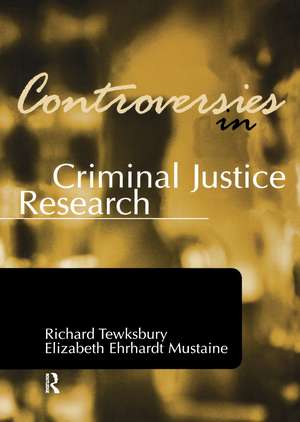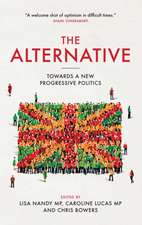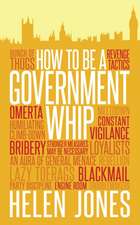Controversies in Criminal Justice Research
Autor Richard Tewksbury, Elizabeth Ehrhardt Mustaineen Limba Engleză Hardback – 2 dec 2016
| Toate formatele și edițiile | Preț | Express |
|---|---|---|
| Paperback (1) | 346.76 lei 43-57 zile | |
| Taylor & Francis – apr 2004 | 346.76 lei 43-57 zile | |
| Hardback (1) | 1218.08 lei 43-57 zile | |
| Taylor & Francis – 2 dec 2016 | 1218.08 lei 43-57 zile |
Preț: 1218.08 lei
Preț vechi: 1485.47 lei
-18% Nou
Puncte Express: 1827
Preț estimativ în valută:
233.10€ • 241.99$ • 194.37£
233.10€ • 241.99$ • 194.37£
Carte tipărită la comandă
Livrare economică 24 martie-07 aprilie
Preluare comenzi: 021 569.72.76
Specificații
ISBN-13: 9781138156098
ISBN-10: 1138156094
Pagini: 216
Dimensiuni: 178 x 254 mm
Greutate: 0.45 kg
Ediția:1
Editura: Taylor & Francis
Colecția Routledge
Locul publicării:Oxford, United Kingdom
ISBN-10: 1138156094
Pagini: 216
Dimensiuni: 178 x 254 mm
Greutate: 0.45 kg
Ediția:1
Editura: Taylor & Francis
Colecția Routledge
Locul publicării:Oxford, United Kingdom
Cuprins
Introductory Chapters 1. Should (Does) Criminal Justice Research Influence Social Policy? 2. The Value of Purely Theoretical Research vs. More "Practical" Research 3. How to Know if a Piece of Research Is Good/Valuable Quantitative Methods 4. Methodological Yin and Yang: Value of Qualitative and Quantitative Research in Social Science 5. Original vs. Secondary Data Collection: The New Dilemma for Research 6. Does Theory Really Guide Survey Research? Why Is Theory Important in Surveys? 7. Macro and Micro Research Aproaches: Which Makes More Sense? Qualitative Methods 8. Getting In and Getting On: Entrée Strategies and the Importance of Trust and Rapport in Qualitative Research 9. Interviews as Data Collection Method: But, Which Type Should I Use? 10. Validity of Participant Observational Data/Research 11. Utility of Case Studies
Notă biografică
Tewksbury, Richard; Ehrhardt Mustaine, Elizabeth
Descriere
This book of original essays presents students with challenging looks at some of the most basic, and sometimes most difficult, decisions faced by criminal justice researchers. Each chapter presents an overview of a foundational question/issue in the conduct of research, and discussions of the options to resolve these controversies.

















